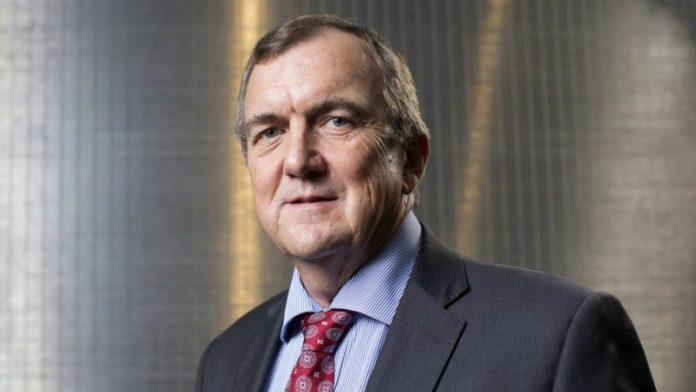
THE merger of AngloGold Ashanti with Gold Fields would have been the best outcome for both companies, said Mark Bristow, CEO of Barrick Gold on Thursday. “It’s a tragedy it never happened.”
Bristow’s comments come as both Johannesburg-headquartered companies tackle the dual problem of gold reserve replacement and growth. AngloGold is bedding down the takeover of Coeur Mining’s Nevada properties that border its own. The deal cost $150m and adds to the $370m takeover last year of Nevada-based Corvus Gold.
Gold Fields meanwhile is currently meeting shareholders ahead of a general meeting on November 22 in which they’ll vote on the proposed $6.7bn takeover of Yamana Gold. Gold Fields CEO, Chris Griffith said he drew no major negatives from the first few meetings, but the market has been sceptical.
Bristow, who in 2019 oversaw the nil-premium merger of his company Randgold Resources with Barrick Gold, said it was “stupid” to think that M&A was the only path to growth, but a lack of investment in resources had given gold companies no choice in certain cases.
“The tragedy for me is the best deal should have been AngloGold and Gold Fields. There was a consolidation that made a whole lot of sense,” he said on Thursday shortly before his firm’s third quarter results presentation.
The combination of AngloGold and Gold Fields has been an regular source of speculation for years and was heightened in 2020 when Sibanye-Stillwater CEO, Neal Froneman suggested his firm could become the glue that made all three fit together. His proposal was quietly rebuffed by both companies, and hasn’t been revived.
Froneman has since said he would wait until market conditions were calmer before considering again how to breathe life into his ageing gold division. Alberto Calderon, CEO of AngloGold said however, M&A has always been hard. “The big issue always is: are there real synergies and can you explain them to the market”.
Another major piece of M&A that didn’t see light of day was Tesla founder Elon Musk’s interest in diversified miner Glencore. Bristow doubted this transaction would make sense, saying that what the industry needed was more engineers and scientists rather than arm-waving from Musk. “This industry needs high level engineering. We have to invest heavily in the sciences and engineering professions because they are becoming scarce.
“Elon Musk … if you look at his valuation it is not based on reality and that is the one thing this world needs,” said Bristow.
Net profit slides
Barrick announced a 30% decline in net profit which Bristow said was due to the decline in production and an 8% lower gold price. Consequently, there was a a 22.7% lift in all-in sustaining costs to $1,269/oz. Bristow, however was confident Barrick would meet full year production and added the gold price was “holding its own”.
“We have moved from negative to a positive interest bearing paper currency and so the ability to invest in T-bonds is very real. A 3% yield is very attractive for some people. So gold has done very well,” he said. But he expressed concern over input inflation despite some commentators in the market claiming it was beginning to ease.
“Inflation is very real,” he said. “The world printed money in the 2008/9 financial crisis and again during Covid and now the books don’t square up. You can’t have global debt exceeding asset value. The developed world is materially indebted compared to the Eighties when had last inflation. and now it’s wishing it past but we haven’t got half way to real interest rates,” he said.
He viewed increases in fuel to be related to geopolitical stresses, led by Russia’s invasion of Ukraine. “You have these crazy geopolitical crises across the globe. Never before have we seen it because it’s everywhere you go.”











